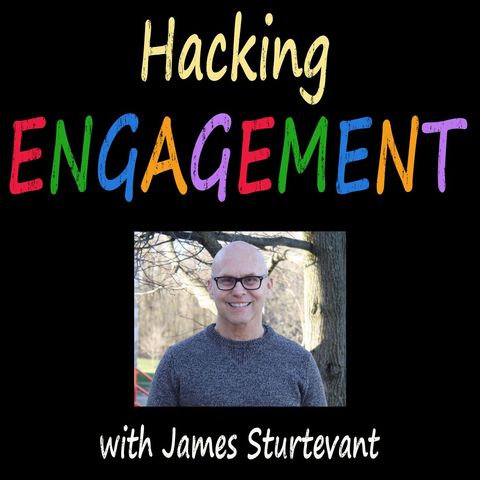16 OCT 2022 · This episode is about Constructivist Learning. Here’s a definition from the University of Buffalo:
Constructivism is the theory that says learners construct knowledge rather than just passively take in information. As people experience the world and reflect upon those experiences, they build their own representations and incorporate new information into their pre-existing knowledge (schemas).
I grew up in the pretty rolling eastern part of Ohio. We had beautiful woods behind my house. As a boy, I’d wander those woods. I couldn’t tell a maple from an oak, but I loved being in those tall trees.
In science class, my attention often wandered and my grades suffered. But the hands-on parts engaged me more. One project I actually loved and it made a lasting impression. In one of my high school science classes, I don’t even remember which, we were tasked to collect leaf specimens for a display and a presentation. For a week after football practice, I would wander the woods behind our house and collect colorful leaves. It was exhilarating. I learned a bunch about the trees that I had always appreciated but knew little about. I filtered my new knowledge through my extensive experience of walking in those woods. I developed a new understanding of how the forest functioned. As I learned about the trees I became passionate about sharing my new knowledge, my passion, and my interpretation of the natural beauty behind my house. I became curious about trees and sought more information. I still vividly remember this project and virtually nothing else about that science class. This project was assigned to me over 4 decades ago!
When I ask students to recall powerful learning experiences, they often point to something similar. It could be a capstone project or a breakthrough where they finally learned how to do something or mastered a skill. In most cases, students point to a memory where they were actively making sense of something—like the differences in the trees in the woods behind my house.
.
Now, consider every class that you’ve been assigned to teach. If you’re like me, and I’ll wager that you are, you must figure out the curriculum guide or the syllabus. It becomes like a hands-on science project and is often confusing at first. It only starts to make sense once you implement your spin informed by your perspective. When I teach a new class, my lessons generally end up looking quite different from whoever taught the class previously. Of course, in the opinion of your humble narrator, my version of the class is always superior.
The process that I just described is Constructivist Learning. All learners, including teachers preparing to teach a class, construct meaning from their own perspective. This may lead to diverse understanding and creations, but that’s okay. We educators should embrace this variety.
On the other hand, I often ask my students, “How would you do if you had to retake last semester’s final exams?” Most grimace and predict that they wouldn’t do well. This is depressing. It points to the reality that many educators assess a lot of short-term memory. I’m not trying to come off as superior. I’ve done my share of it too. However, such learning events don’t make much of an impression.
And this dear listener is where Kennedy Borcoman makes a dramatic appearance.


